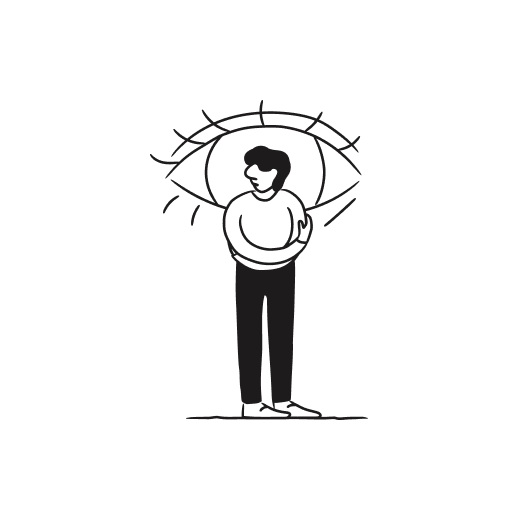It's common to feel nervous in some social situations, like a date, for example. But with social anxiety disorder, or ‘social phobia’, social interactions trigger extreme anxiety, fear, self-consciousness and embarrassment. It can have a big impact on the way that the person functions in everyday situations and can be very distressing for those suffering from it.

Experiencing social anxiety disorder is different from being a shy or quiet person. Social anxiety is intense fear, shyness or nervousness triggered by social situations. For example, you might be very anxious about being negatively judged by other people, fearing criticism or being afraid of doing something that you feel will be embarrassing or 'stupid'. You may also experience physical symptoms of anxiety such as panic attacks, sweating, blushing, having a racing pulse or a dry throat and mouth, trembling, dizziness, upset stomach or nausea, and muscle twitches. You will likely avoid situations that trigger these feelings, for example, group situations like parties, or situations where you might be the centre of attention or have to interact with strangers.
You may spend a great deal of time anxiously anticipating an upcoming social situation. In such situations, you may have a number of methods you use to cope if you’re unable to avoid the situation entirely. We often don’t notice that these attempts to cope can be part of what keeps the anxiety going. Certainly, people who experience social anxiety often report that they miss out on opportunities during their life as a direct result of avoiding specific situations. If you’re experiencing social anxiety, you will likely over-analyse your performance after a social situation, reliving it over and over and identifying more and more flaws in your interactions that others will probably not have noticed – a habit sometimes referred to as 'post-mortemising'.
Social anxiety disorder symptoms can change over time. They may flare up if you're facing a lot of changes, stress or demands in your life. Although in the short term avoiding situations that produce anxiety may make you feel better, your anxiety is likely to continue long term if you don't get treatment.
It's normal for people to be sensitive to – and give a great deal of thought to – social interactions with other people. This helpful awareness can become social anxiety if it escalates into an unhelpful pattern of persistent fear and avoidance.
There is no single cause of social anxiety disorder, but it can often appear in teenage years and often stems from a fear of being judged negatively by others. Social anxiety symptoms can get better on their own, or you might find that they get better as you get older. However, if your social anxiety symptoms are significantly impacting your life, it might be a good idea to consider seeking help.

Dealing with social anxiety can feel like a huge challenge when you’re in the midst of it. But there are treatments that can help you so your social anxiety doesn’t have to hold you back or prevent you from fulfilling your potential. If you go to your GP, they’ll be able to help you decide on the right treatment for you. Interventions like CBT and medication are common methods of helping someone with social anxiety disorder. Many of the symptoms that can appear with social anxiety, such as paranoid thinking also respond well to CBT.
Many people with social anxiety also find support groups can be helpful. A support group can give you unbiased, honest feedback about how others see you. This can help you to learn that your thoughts about judgment and rejection are not true or are distorted. You can also learn how others with social anxiety disorder approach and overcome their fear of social situations.
Many of the symptoms that can appear with social anxiety, such as paranoid thinking, also respond well to CBT. To find out more about this psychological issue, please read more on our PTSD page.
Social phobia is often termed the 'silent' disorder as it can go undetected by those around them or is confused with shyness or introversion. However, it can have a profound impact on the person suffering from it.
If you know someone who you think might be suffering from social anxiety disorder or social phobia, there are ways you can help.
If you can talk to the person about it, doing so might help both of you understand more about their anxiety, what goes through their mind, and how they behave in certain situations. The person suffering may feel very isolated, and being listened to can be an important part of the healing process.
There are lots of resources and information about social anxiety disorder and social phobia online. Learning as much as you can about it yourself, including the signs and symptoms and the best methods of treatment, will help you understand what they’re going through and what might help them.
One of the first steps is to encourage them to seek help from a GP. The GP will be able to refer them for treatment, which will ultimately help them recover.
In certain areas of the UK you can self-refer to Mindler. If you are unable to refer directly please speak to your GP to see if Mindler is available. If you'd like to find out about other mental health support options available in your area, visit the NHS website.